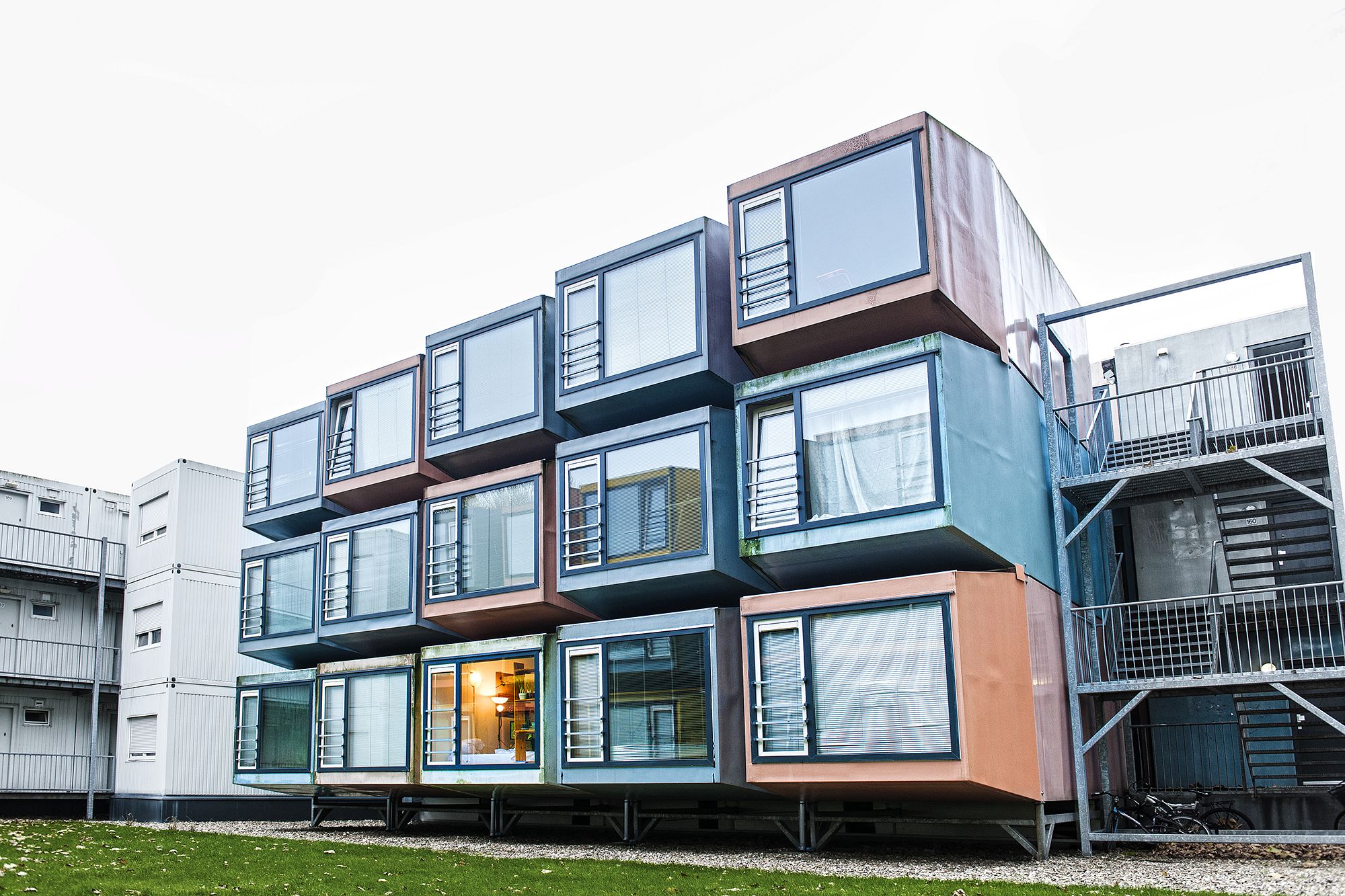After 12 years of service, the iconic spaceboxes
behind the Faculty of Electrical Engineering,
Mathematics and Computer Science (EEMCS) on Leeghwaterstraat are weather stained and patched up in places.
The municipality of Delft originally granted a permit for them until 2008, which has since been extended to cover rising student housing needs.
Meanwhile, the manufacturer, Holland Composites, no longer makes them as they do not conform to changes in the building codes. Delta asked how the quality of the accommodation is holding up to extended use and what some current residents think of it. Hip retro digs with status or cramped obsolete dens overdue for replacement?
This compact housing, providing 16m² self-contained studios, was introduced with initial enthusiasm to quickly increase housing capacity in 2003. The location is convenient, but can be isolated and lonely on weekends and holidays. In the past it has polarised opinion between enthusiasm and protest. Complaints included inadequate sound insulation, poor ventilation and the noise and vibrations of the metal stairs and catwalks. They have also been held up as evidence of segregation of foreign students with a large proportion of Asians living there.
A comparison with universities at home explains the appeal for Chinese students. Yu Gong, an aerospace engineering exchange student wanted her own individual spacebox. Student accommodation in China typically means sharing the same dorm with three other students and using a communal bathroom with even more. Knowing she will spend half a year in Delft and experience a Dutch winter, she also wanted to be as close as possible to the Faculty of Aerospace Engineering.
Her neighbour, Ganlin Lyu, is from the same exchange programme. “I wanted a location close to the faculty and a single room. I study at night and don’t want to disturb my roommates,” he said. “I heard about students in Holland living in containers and was curious to try it out.”
Jiayuan Wei, another Chinese exchange student studying architecture said: “They are safe and colourful, in a green area and close to my faculty and the sports centre. Great for working alone.” However, she sometimes misses the dorm she shared in China with other architecture students. “We learned to help one another and be considerate.”
The spaceboxes are owned by landlord, DUWO. Gerrit Dijkstra, DUWO Delft branch manager, said: “We’re happy with them. They are eye-catching and the tenants are happy. Chinese students prefer them since they are our cheapest accommodation on offer.” DUWO would not realise a similar unorthodox concept nowadays. Now they focus on using larger modular shipping containers and using prefab units to provide housing that looks like a normal building. “This is the last year that we will be renting them out. Our building permit from Delft municipality will expire at the end of 2016 so they will be taken down and we intend to sell them,” said Dijkstra.
“The spaceboxes have attracted internationals firstly due to their campus location, then due to the individual accommodation they provide,” said Alexander van der Wel of the housing department at the Central International Office. “DUWO will build new student housing behind their office on Kanaalweg to make up for the lost capacity after the spaceboxes and containers are removed next year.”


Comments are closed.